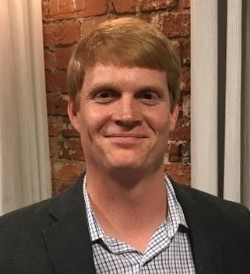The State of the States
FEATURED PAPER
By Andrew Grandage, PhD
Western Carolina University
North Carolina, USA
Abstract
This study contributes to our understanding of enterprise project management with original research on U.S. state governments. A multi-method research design is used to uncover context on reforms and strategies related to major Information Technology (IT) acquisitions. Findings from 33 states show that the rise of enterprise project management in U.S. state governments can be attributed to a combination of government modernization, disappointing results, and growing emphasis on results-based accountability. Ultimately, government modernization exposed weaknesses of existing planning and management routines that had traditionally been decentralized and ad-hoc. As a result, reforms included the creation of Enterprise Project Management Offices (EPMOs), adoption of industry standards, and establishment of project management guidelines. States have taken steps to centralize planning with state and agency leadership active in strategic alignment, but project delivery remains very decentralized with agencies retaining considerable discretion in managing their projects.
Introduction
For centuries, project leaders have used various management approaches to deliver high-quality products quickly and efficiently. Traditionally, the focus has been on the execution of single projects. However, during the last few decades, increasing emphasis has been placed on fostering effective project management throughout an organization, while also meeting greater demands for external accountability (Dinsmore and Rocha, 2012). Therefore, the Enterprise Project Management Office (EPMO) has gained popularity as leaders strive to improve organizational performance with better project management and build stronger governance structures. Specifically, EPMOs have been created to support strategic alignment, knowledge management, policy development, oversight, and managing change as new processes are implemented, among other things.
Although the scope of EPMO operations can vary widely among organizations based on their unique needs, the primary purpose of an EPMO is to provide direction to units within their organization that manage projects. For example, organizations that engage in projects to acquire assets to deliver services, such as governments, may emphasize strategic alignment to ensure they are making the right capital investments. In contrast, contractors delivering these assets may stress the importance of disciplined cost management to ensure profitability. Furthermore, some organizations may not have formally established an EPMO, but have an EPMO “presence” in the form of recognized hierarchy and documented processes without a centralized office (Dai and Wells, 2004).
The aim of this study is to disseminate knowledge on EPMO operations in the public sector. Specifically, the paper chronicles the rise of enterprise project management in U.S. state governments for major Information Technology (IT) acquisitions, highlighting best practices and lessons learned along the way. Attention to this area is instructive for a few reasons. First, state agencies need complex and expensive IT systems to perform their operations. Second, IT projects have become notorious for project failures, missed deadlines, and busted budgets (Flyvbjerg, 2017). Third, state governments are large organizations that must prioritize technology investments across a wide range of operations and establish management structures and routines to deliver these projects efficiently.
Findings from 33 state governments show that enterprise project management is widespread and eclectic but relatively new as a formal institution. Specifically, all but four states have formed an office, but their operations vary significantly, and half were established within the last 10 years. The primary motives for establishing EPMOs have centered on strategic alignment and the need to improve project delivery via knowledge management and use of industry standard practices. Ultimately, the experiences of the states provide a helpful assortment of best practices and lessons learned, but major work remains for many states in terms of embedding project management reforms within existing work routines.
Enterprise Project Management
Before discussing the rise of enterprise project management in U.S. state governments, some key terms and concepts will be clarified in the context of this operating environment. In U.S. state governments, the executive branch is responsible for preparing budgets for legislative approval and implementing laws that are passed. The Governor appoints a Chief Information Officer (CIO) to formulate and implement a statewide technology plan, which is then supported by the EPMO. For example, an EPMO can support strategic alignment by working with state agencies to develop their spending requests for capital investments, creating priority ranking systems, and assisting the Governor and state legislature in their budget negotiations…
More…
To read entire paper, click here
How to cite this paper: Grandage, A. J. (2022). Enterprise Project Management: The State of the States; PM World Journal, Vol. XI, Issue X, October. Available online at https://pmworldlibrary.net/wp-content/uploads/2022/10/pmwj122-Oct2022-Grandage-enterprise-project-management-state-of-the-states.pdf
About the Author

Andrew J. Grandage, PhD
North Carolina, USA
![]()
Andrew J. Grandage, PhD, is an Assistant Professor at Western Carolina University in Cullowhee, North Carolina. His research interests focus on public administration, specifically the nexus of performance management, budgeting, and project management. Recent publications include work on project management in U.S. state governments and capital planning at the local level. Andrew teaches courses on public administration and budgeting. He earned his PhD from The University of Georgia in Public Administration and Policy with a specialization in Public Budgeting and Financial Management. Prior to his academic career, Andrew worked as a financial analyst at Harris Corporation (now L3Harris Technologies) for several years. Prof Grandage can be contacted at agrandage@email.wcu.edu.









